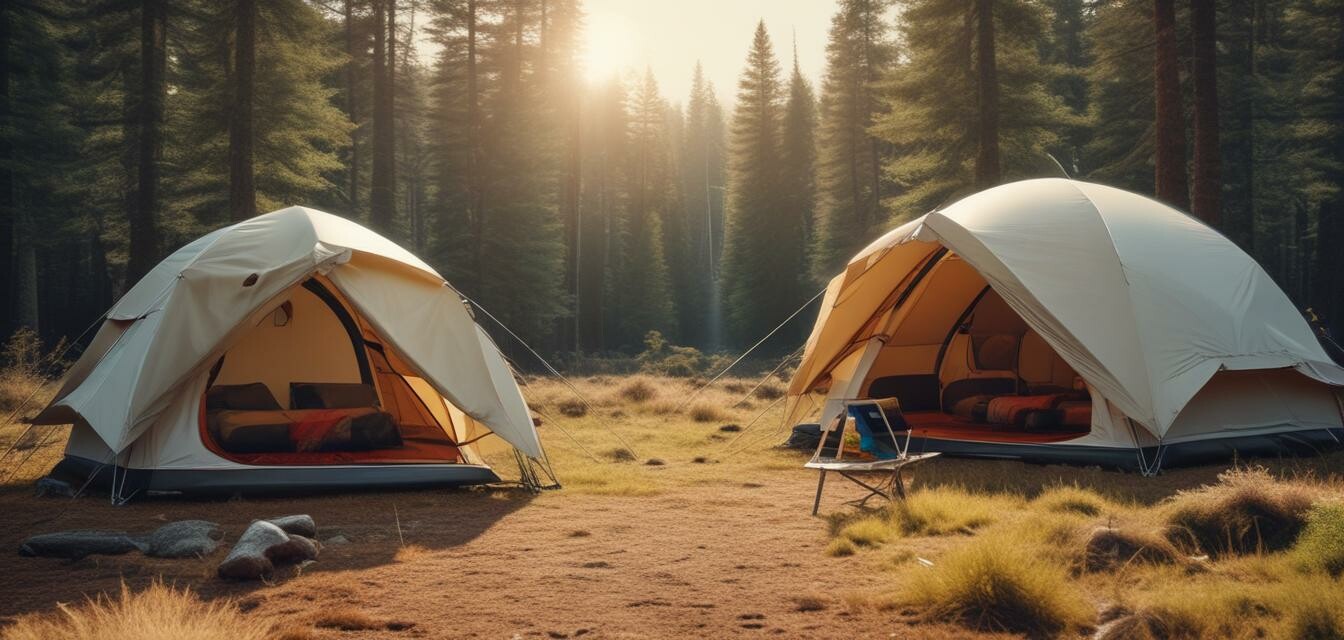
How to choose the right solar-powered tent for you
Key Takeaways
- Understanding the energy needs for your camping trip is crucial.
- Consider size, weight, and ease of setup for your solar-powered tent.
- Evaluate the solar capabilities, including panel efficiency and battery storage.
- Check for durability and weather resistance in fabric and construction.
- Compare prices and functionalities to find the best value.
Camping is an incredible way to connect with nature, but the right equipment can make all the difference. Solar-powered tents are more than just standard shelters; they provide the convenience of energy generation while you explore the outdoors. This guide helps you navigate the essential features to look for when choosing a solar-powered tent, ensuring your next camping adventure is equipped with the right gear.
Benefits of solar-powered tents
Solar-powered tents integrate technology with nature, offering unique advantages that traditional tents lack. Below are some benefits:
- Environmentally friendly, utilizing renewable energy.
- Provides power for small devices, lights, and more.
- Requires no external power sources, increasing convenience.
- Great for longer camping trips where standard methods might fail.
Key features to consider
When shopping for a solar-powered tent, assessing specific features can help you make an informed choice. Here's a breakdown of key considerations:
| Feature | Importance | Notes |
|---|---|---|
| Solar panel efficiency | High | Choose panels with high efficiency to maximize energy output. |
| Battery storage | Medium | Adequate capacity allows storage of energy for nighttime use. |
| Size and weight | High | Ensure tent size suits your needs and is easy to carry. |
| Set-up time | Medium | Simple setup saves time when you arrive at your campsite. |
| Weather resistance | High | Durable fabric can withstand rain and wind, keeping you safe. |
Understanding solar panel efficiency
When evaluating solar-powered tents, pay close attention to solar panel efficiency. Panels convert sunlight into energy, and higher efficiency ratings mean better performance even on cloudy days. Look for tents with lightweight but efficient panels that can capture and convert more sunlight.
Battery storage capacity
Storage capacity is another essential feature. Many tents come with built-in batteries that store energy generated during the day. This energy can power lights or charge devices at night. Opt for tents with larger storage capacities if you plan to have multiple devices charged.
Comfort and usability
A comfortable camping experience relies on a good shelter. Here are some aspects that affect comfort and usability:
- Roomy interior: Ensure there’s enough space for your gear and to move around.
- Ventilation: Look for tents with proper airflow to avoid condensation.
- Ease of Access: A tent with multiple entrances can add convenience.
Price comparison
The price of solar-powered tents can vary widely. Here, we’ll categorize price ranges to help you find a suitable option:
| Price Range | Typical Features | Who it's for |
|---|---|---|
| $100 - $300 | Basic setup; moderate battery capacity. | Casual campers or occasional users. |
| $300 - $600 | Improved efficiency; good storage; extra features. | Regular campers needing reliability. |
| $600+ | Top features; robust materials; large storage. | Serious adventurers or long-term users. |
Where to buy solar-powered tents
For reliable options, you can explore various online marketplaces. Websites like Amazon are a good starting point, allowing you to compare prices and features easily. A couple of categories to check out include:
Customer feedback and reviews
Before making a purchase, checking feedback from other users can provide valuable insights. Look for reviews that touch on:
- Ease of setup and use.
- Durability and performance in various weather conditions.
- Battery life and charging speed.
- Overall satisfaction and any issues faced.
Final thoughts
Choosing the right solar-powered tent can greatly enhance your camping experience. By focusing on the essential features, comparing options, and analyzing user feedback, you are more equipped to find a tent that suits your needs. Remember, the goal is to enjoy nature without sacrificing comfort and convenience. Happy camping!
Pros
- Eco-friendly energy source.
- Provides reliability in energy needs.
- Enhances the overall camping experience.
Cons
- Higher initial investment compared to traditional tents.
- Performance can be weather-dependent.
- Weight may be a factor for backpackers.